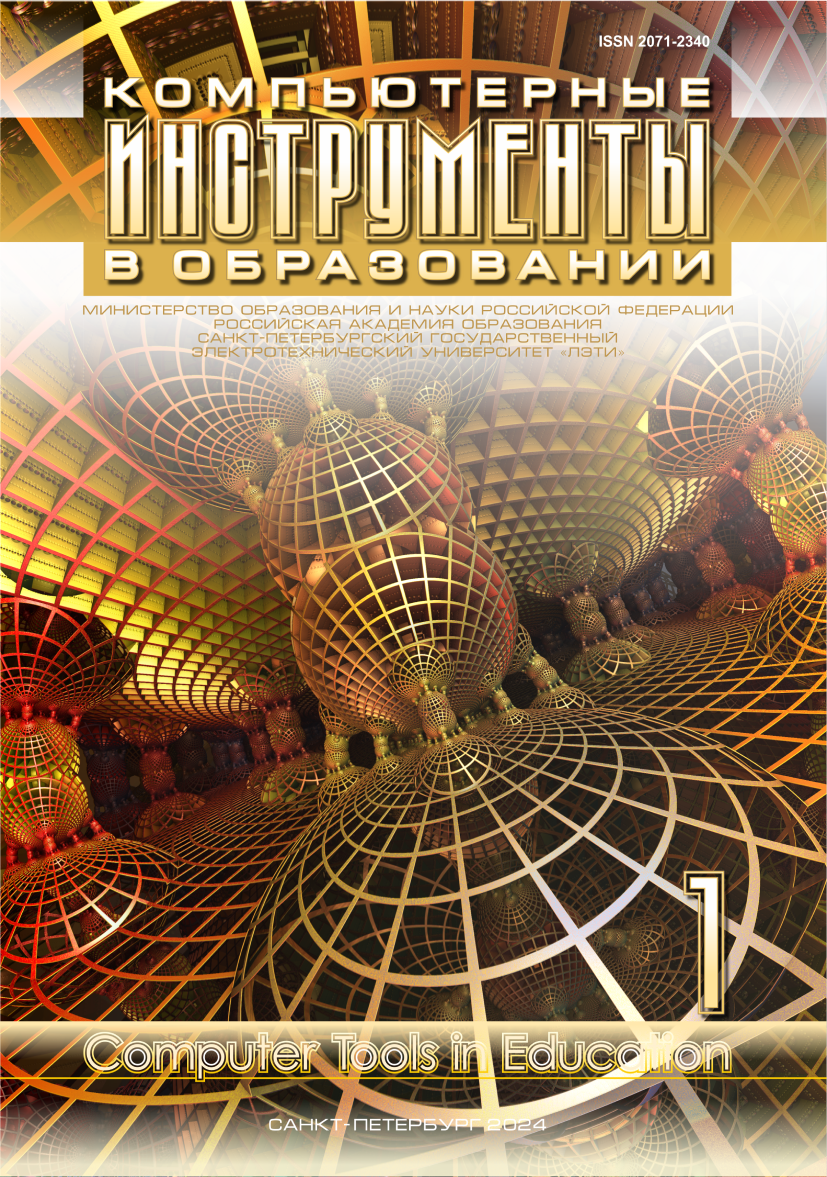Method of generating unique variants for mathematical problems
Abstract
The article poses the problem of creating generators for unique multivariate mathematical problems. Types of methods of obtaining random numbers are considered. A comparative analysis of the standard generator used by developers with the generator providing the possibility to create sets of numbers occurring once among the required range of values is carried out. A specific example is provided that requires the application of unique problem sets and parameters. The examples are accompanied by formulas in general form, listings of the proposed algorithms of functions in JavaScript, a brief verbal description of the result of the functions. Attention is paid to the generation of numbers without zero, to the peculiarities of development, taking into account the choice of the best interval for a wide range of values of generated numbers, excluding the use of loops and reducing risks. The article explains a method of description of the result of generation of numbers in JSON format, which can be used when transferring the obtained sets between different programming languages.
References
A. A. Finogenov, Ispol'zovanie generatora zadach dlya kontrolya znanij po vysshej matematike u studentov mladshih kursov [Using a task generator to control the knowledge of higher mathematics among undergraduate students], Vestnik YUGU, no. 2 (41), pp. 6567, 2016 (in Russian).
D. V. Vinokurova, Informacionnaya sistema dlya obucheniya resheniyu kvadratnyh uravnenij s parametrom [Information system for learning to solve quadraticequations with parameters], in Mezhdunarodnaya nauchno-prakticheskaya internet-konferenciya Aktual'nye problemy metodiki obucheniya informatike i matematike v sovremennoj shkole¿, 24-28 Apr. 2023, Mosñow, 2023 (in Russian). [Online]. Available: http://news.scienceland.ru/2023/04/23/информационная-система-для-обучения
N. N. Sosnovskij, Razrabotka metodicheskih materialov v srede sistemy Mathematica [Development of methodical materialsin the environment of "mathematica"], Computer tools in education, no. 5, pp. 53-60, 2015 (in Russian).
N. A. Ivanova, Vozmozhnye napravleniya primeneniya resursov programmirovaniya sredy Mathematica pri reshenii matematicheskih zadach [Possible areas of application of Mathematica programming resources in solving mathematical problems], Vestnik Baltijskogo federal'nogo universiteta im. I. Kanta. Seriya: Filologiya, pedagogika, psihologiya, no. 5, pp. 155160, 2012 (in Russian).
O. I. Muhin, Modelirovanie sistem [System Modeling], in https://stratum.ac.ru 2001(in Russian). [Online]. Available: https://stratum.ac.ru/education/textbooks/modelir/
V. V. Kruchinin, Metody, algoritmy i programmnoe obespechenie kombinatornoj generacii [Methods, algorithms and software for combinatorial generation], Doctor Sc. diss., TUSUR, Tomsk, Russia, 2013 (in Russian).
A. V. Titkov, Sistema postroeniya generatorov kombinatornyh mnozhestv na osnovederev'ev I/ILI [The system of construction of combinatorial set generators based on AND/OR trees], Cand. Sc. diss., TUSUR, Tomsk, Russia, 2010 (in Russian).
Y. A. Zorin, Avtomatizaciya postroeniya mnogovariantnyh testovyh zadanij na osnove derev'ev I/ILI[Automation of multivariate test case construction based on AND/OR trees], Cand. Sc. diss., TUSUR, Tomsk, Russia, 2014 (in Russian).
I. A. Posov, Avtomatizaciya processa razrabotki i ispol'zovaniya mnogovariantnyh uchebnyh zadanij [Automating the development and use of multivariate training tasks], Cand. Sc. diss., SPbSU, St. Petersburg, Russia, 2012 (in Russian).
M. MakGrat, JavaScript in easy steps, Moscow: Eksmo, 2023 (in Russian).

This work is licensed under a Creative Commons Attribution 4.0 International License.







